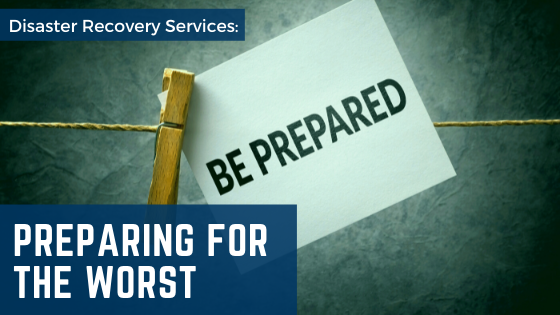It is no secret that disasters can wreak havoc on an organization and cause its operations to be disrupted or halted. These events can often cause significant damage to a company’s reputation and finances. For this reason, every business needs disaster recovery services.
Disasters can be more than natural events like hurricanes and tornadoes. The damages could also be caused by outages, system failures, or malicious cyber attacks. Whatever it is, every organization needs to be proactive and make strategic plans on how to avoid and recover from these occurrences.
Disaster Recovery Services refers to solutions and strategic plans to restore the services of an organization after a disastrous situation. Recovering from a disaster without proper planning can be really challenging.
There are businesses that never recovered due to the severity of the damage and lack of adequate planning. Having a good disaster recovery plan would help your business resume its normal operations after a crisis in no time.
Why Your Business Needs Disaster Recovery Services.
Below are reasons why disaster recovery services are essential for every business.
To reduce unnecessary network downtime: When there is a disaster, recovering from it is usually quite difficult. Sometimes, you need a team of experts to walk you through the recovery process and help your business find its feet again. However, having no disaster recovery plan would prolong the time it takes for your business to resume its activities.
To avoid unnecessary costs and damages: A period of network downtime is equivalent to financial and reputational loss. Also, the longer the period your business is inaccessible, the more customers you lose. Thus, to avoid substantial financial loss after a disastrous event, it is advised to plan towards unimaginable disasters.
To prevent loss of data and information: Data backup is an essential aspect of disaster recovery. You can never tell when an unfortunate incident can occur. Thus, it is advised to have a data backup to avoid losing the necessary files, and information about your business.
What Storage Options are available?
There are two significant ways to store your data. You can either keep them onsite or use a cloud storage facility.
The onsite storage route involves keeping your information in storage devices such as Compact Discs (CDs), external Hard Disk Drives (HDDs) etc. Although this technique usually requires no internet access, it is less safe to use than cloud storage.
On the other hand, Cloud backup permits you to store your data in the cloud using remote servers. This makes the data accessible anywhere where there’s internet access. It also guarantees a better safety of the data than physical storage devices.
Other benefits of using cloud backup services include:
- Convenience of use.
- Scalability, Flexibility and Reliability .
- Easy synchronization of files and data.
- Easy data collaboration between employees.
- Cost-, space- and time- effectiveness.
- Easy access to stored data anywhere.
- Data is secured in physical disasters like fire outbreaks or natural disasters like floods and earthquakes.

